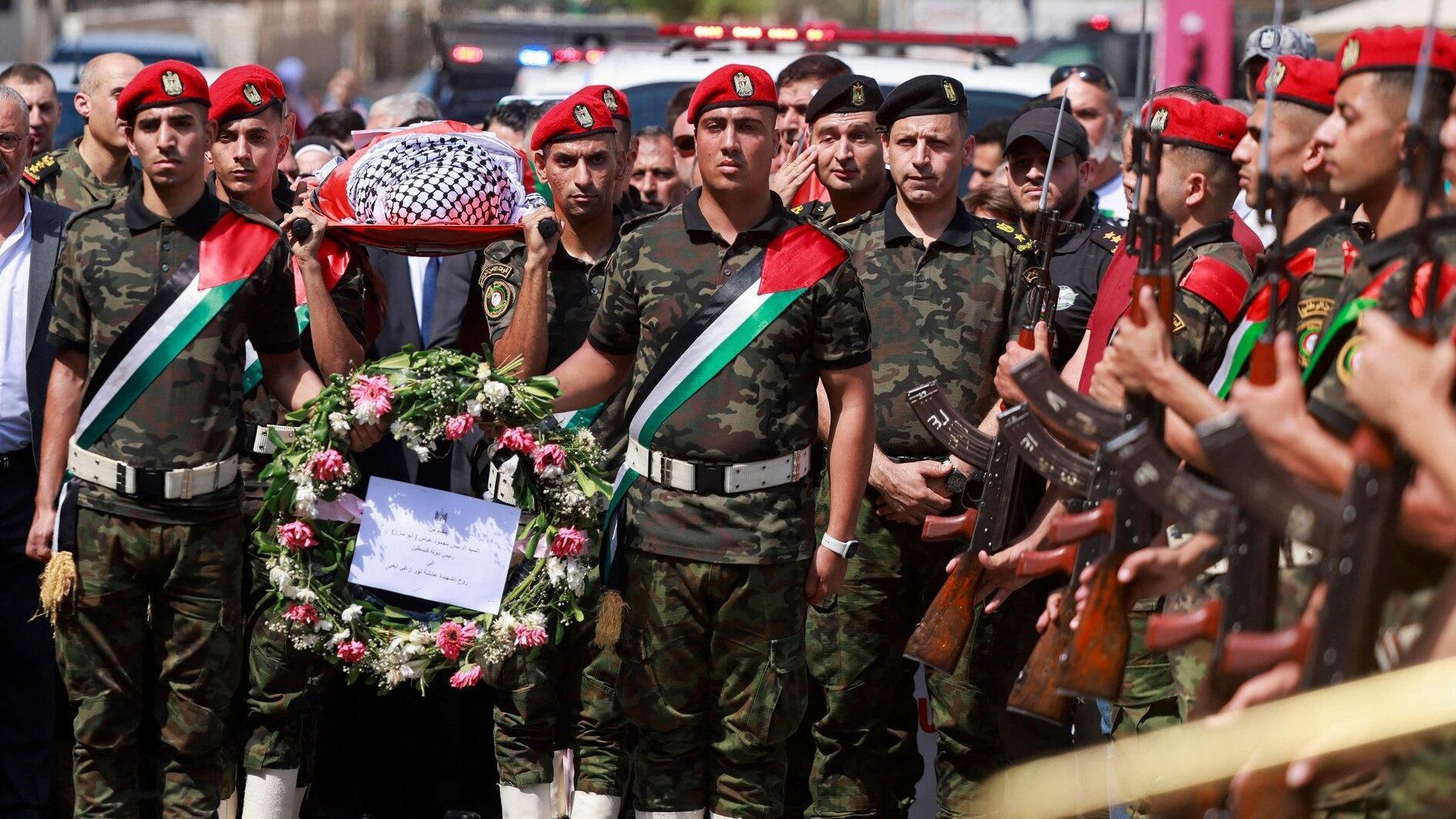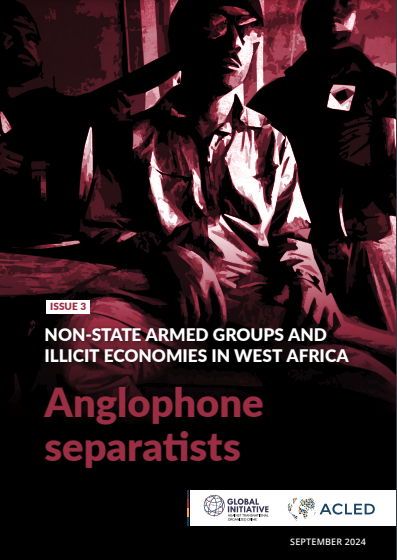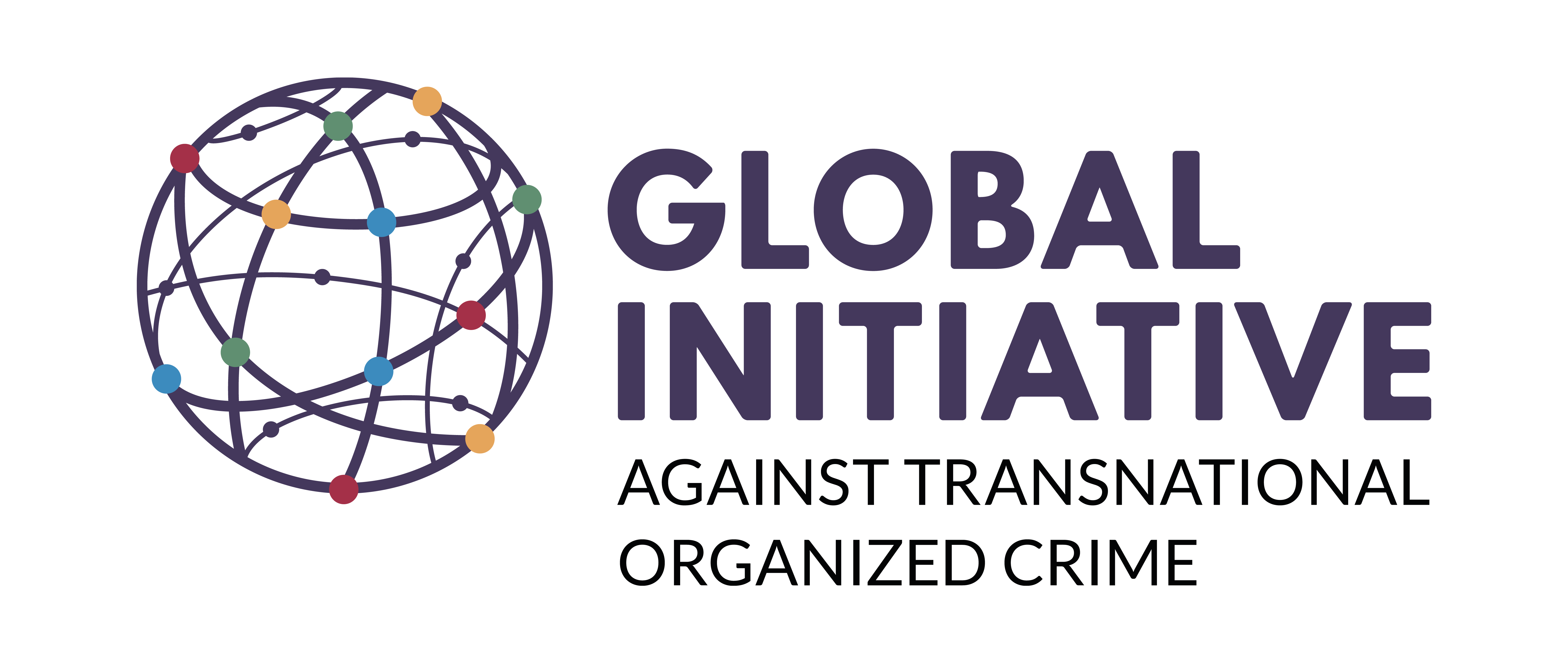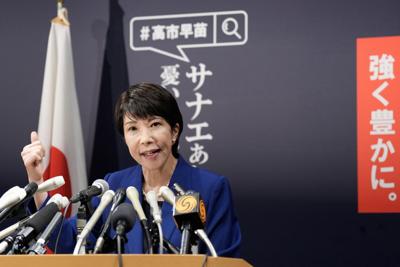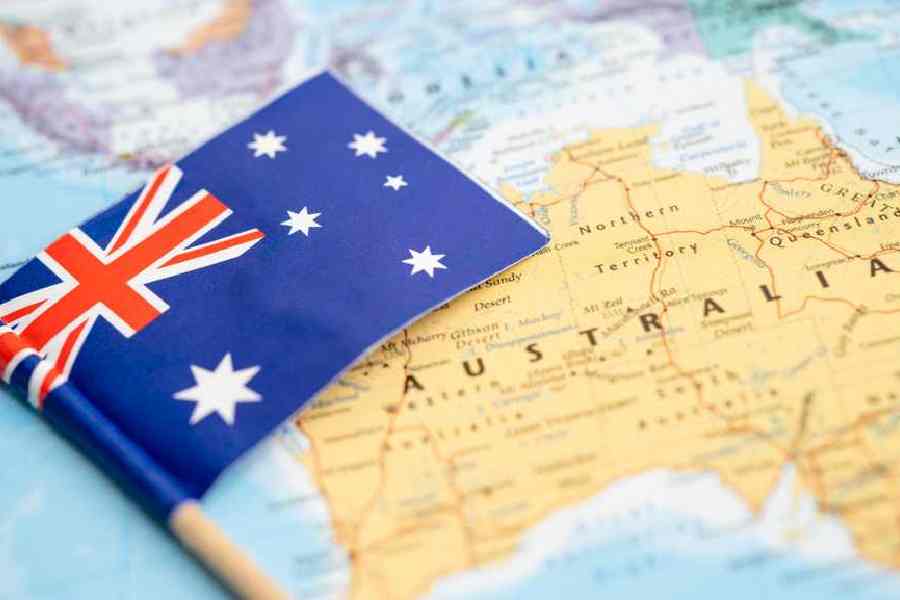‘It's a war on the Palestinian people now’ – Micheál Martin condemns latest bombing that killed 40 in Gaza
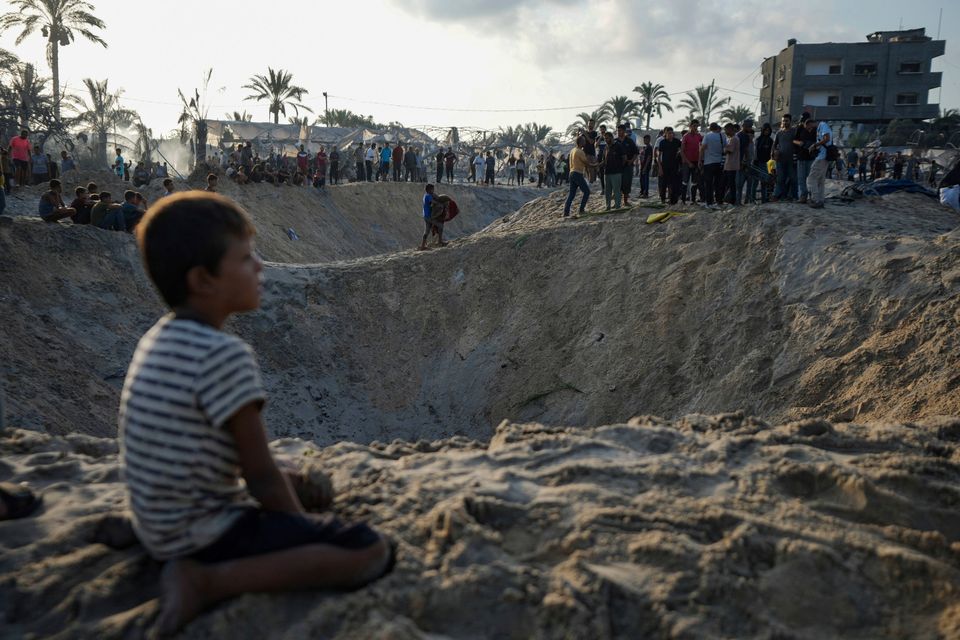
Palestinians look at the destruction after an Israeli airstrike on a crowded tent camp housing Palestinians displaced by the war in Muwasi, Gaza Strip. Photo: AP
Conor FeehanToday at 04:16
Tánaiste and Minister for Foreign Affairs Micheal Martin has condemned the latest bombing which has killed 40 people in Gaza, and said the level of violence there is the worst the UN Secretary General has ever seen.
Gaza's civil defence agency has said an Israeli strike on a humanitarian zone in the south of the Palestinian territory killed 40 and wounded over 60.
The Israeli army has claimed it had targeted a Hamas command centre in the Al-Mawasi area in Gaza's southern city of Khan Younis which was previously designated a safe zone by the Israeli military early in the war.
A civil defence spokesman has said entire families have disappeared in the attack which left craters three metres deep in the ground.
The Israeli military said in a statement it struck Hamas terrorists who were operating within a command-and-control centre embedded inside the Humanitarian Area in Khan Younis, and that terrorist organisations in the Gaza Strip are abusing civilian and humanitarian infrastructure to carry out terrorist activity against Israel.
“The war is simply going on far too long. It's a war on the Palestinian people now, and the people are suffering too much, and we need a ceasefire,” Mr Martin aid as he arrived for a Cabinet meeting this morning.
“I will be bringing forward a memorandum on the Middle East updating the Cabinet on developments in recent times. Obviously, Ireland's position is very strongly pushing for and urging for an immediate ceasefire, the release of all hostages unconditionally, and huge a humanitarian surge of aid to go into Gaza.”
“I'm also identifying the implications of the International Court of Justice (ICJ) advisory opinion in respect of the illegal occupation of Palestinian territories and the obligations that that will place on member states of the UN and signatories to the ICJ in respect of doing anything that would support that illegal occupation,” he added.
The ICJ advisory opinion from July has said Israel's occupation of the Gaza strip and the West Bank, including East Jerusalem, is unlawful.
“All of humanitarian agencies that I speak to testify to the enormous suffering now that people in Gaza are witnessing, and of course the families of hostages in Israel are going through extraordinary suffering and anxiety as well. And there is no reason now why a ceasefire should not take place,” said Minister Martin.
Asked about Israel moving ammunition through Irish airspace, he said there are international air authorities, and the government expects people to agree with multilateral rules-based system that exists in the world.
“That means respecting the airspace of countries, and the Minister for Transport is examining that and he will come back to Cabinet in respect of next steps,” he said.
Taoiseach Simon Harris said he is conscious that the “horrific humanitarian catastrophe in the Middle East is continuing to unfold”, and that he will be traveling to the United Nations General Assembly this month.
“I will be continuing to advocate for the world to do more in terms of the levers at our disposal to help apply a ceasefire,” he said.
An Israeli strike on a Gaza humanitarian zone tent camp kills at least 40 people, Palestinians say
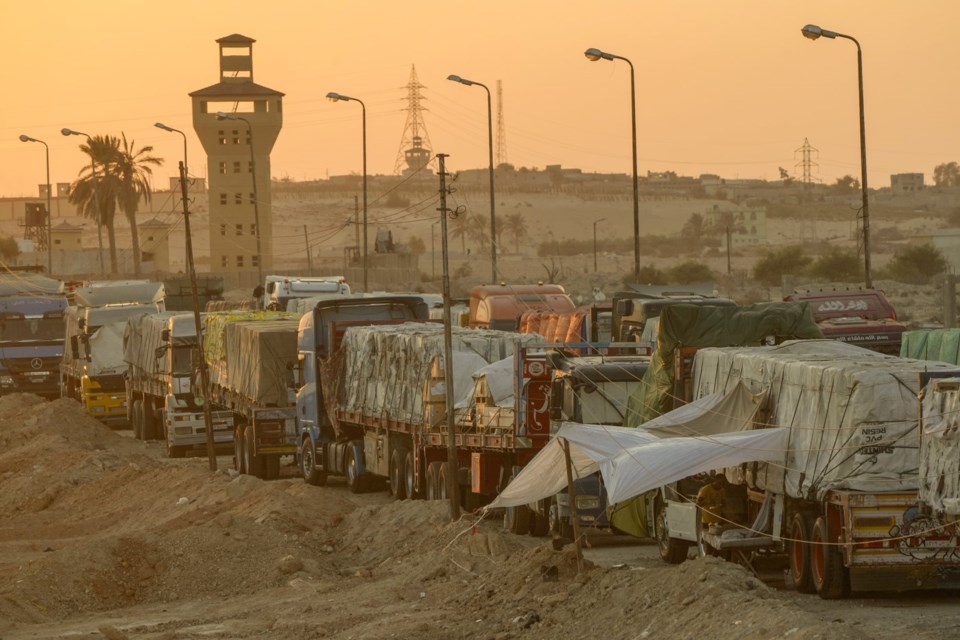
DEIR AL-BALAH, Gaza Strip (AP) — An Israeli strike on a crowded tent camp housing Palestinians displaced by the war in Gaza killed at least 40 people and wounded 60 others early Tuesday, Palestinian officials said. Israel said it targeted “significant” Hamas militants, allegations denied by the militant group.
It was among the deadliest strikes yet in Mawasi, a sprawl of crowded tent camps along the Gaza coast that Israel designated as a humanitarian zone for hundreds of thousands of civilians to seek shelter from the Israel-Hamas war.
The Civil Defense, first responders operating under the Hamas-run government, said it recovered 40 bodies from the strike and was still looking for people. It said entire families were killed in their tents.
An Associated Press camera operator saw three large craters at the scene, where first responders and displaced people were sifting through the sand and rubble with garden tools and their bare hands by the light of mobile phones. They pulled body parts from the sand, including what appeared to be a human leg.
Attaf al-Shaar, who was displaced from the southern city of Rafah, said the strike happened just after midnight and caused a fire.
“The people were buried in the sand. They were retrieved as body parts," she told an Associated Press reporter at the scene.
Nasser Hospital in Khan Younis, one of three hospitals to receive casualties, said around two dozen bodies were brought in from the strike.
The Israeli military said it had struck Hamas militants who were operating in a command-and-control center. It said its forces used precise munitions, aerial surveillance and other means to avoid civilian casualties.
Israel says it tries to avoid harming civilians throughout the war, which was ignited by Hamas' Oct. 7 attack. It blames Hamas for their deaths because the militants often operate in residential areas and are known to position tunnels, rocket launchers and other infrastructure near homes, schools and mosques.
Hamas released a statement denying any militants were in the area. Neither Israel nor Hamas provided evidence to substantiate their claims.
The war has caused vast destruction and displaced around 90% of Gaza’s population of 2.3 million, often multiple times. Israeli evacuation orders, which now cover around 90% of the territory, have pushed hundreds of thousands of people into Mawasi, a sprawling line of squalid tent camps along the coast.
Aid groups have struggled to provide even basic services in Mawasi, and Israel has occasionally struck targets there despite designating it as a humanitarian zone.
Gaza’s Health Ministry says over 40,000 Palestinians have been killed in Gaza since the war began. It does not differentiate between fighters and civilians in its count.
Hamas-led militants killed some 1,200 people, mostly civilians, in their Oct. 7 attack. They abducted another 250 people and are still holding around 100 after releasing most of the rest in exchange for Palestinians imprisoned by Israel during a weeklong cease-fire last November. Around a third of the remaining hostages are believed to be dead.
The United States, Egypt and Qatar have spent much of this year trying to broker an agreement for a cease-fire and the release of the hostages, but the talks have repeatedly bogged down as Israel and Hamas have accused each other of making new and unacceptable demands.
The war has plunged Gaza into a humanitarian crisis, and humanitarian groups have struggled to provide aid because of ongoing fighting, Israeli restrictions, and the breakdown of law and order. The international authority on the severity of hunger crises said in June that the territory is at high risk of famine.
The main United Nations agency providing aid to Palestinians said Israeli troops stopped a convoy taking part in a polio vaccination campaign for more than eight hours on Monday, despite it coordinating with the military. UNRWA head Philippe Lazzarini said the staffers who were held had been taking part in the campaign in northern Gaza and Gaza City.
“The convoy was stopped at gun point just after the Wadi Gaza checkpoint with threats to detain UN staff,” he wrote on the social platform X. “Heavy damage was caused by bulldozers to the UN armoured vehicles.”
He said the staff and the convoy later returned to a U.N. base, but it was unclear if a polio vaccination campaign would take place Tuesday in northern Gaza.
The Israeli military did not immediately respond to a request for comment.
The vaccination drive, launched after doctors discovered the first polio case in the Palestinian enclave in 25 years, aims to vaccinate 640,000 children during a war that has destroyed the health care system.
___
Magdy reported from Cairo. Associated Press writer Jon Gambrell in Dubai, United Arab Emirates, contributed to this report.






